Michigan loses 5,300 manufacturing jobs, in part from auto strike
While Michigan overall gained jobs in 2019, it lost jobs in its most lucrative category. Now, Gov. Gretchen Whitmer favors a tax structure that has hurt other states’ economies.
Michigan gained a total of 19,500 jobs in 2019, but it lost 5,300 manufacturing jobs – the first annual loss in a decade for the sector, which contributes the most to the state’s gross domestic product.
Unfortunately, Gov. Gretchen Whitmer has signaled support for a $2.5 billion progressive income tax hike. Progressive taxes are a strategy that other states have been rejecting and that damaged the economy in Connecticut, the only state to move to the system in the past 30 years.
The manufacturing job losses last year partly resulted from the auto workers strike. Since the strike ended in October, Michigan has continued to recover – adding 4,500 payroll jobs in December alone. That helped the unemployment rate drop from 4% to 3.9%, showing a partial bounce-back from the mid-year slowdown partly driven by the strike. While payroll jobs grew by 19,500, household employment in 2019 grew by just over 58,000, according to preliminary data from the Bureau of Labor Statistics.
Payroll jobs survey
Michigan added a total of 4,500 payroll jobs in December with strong gains in the trade, transportation and utilities sector (+4,000) and manufacturing sector (+2,100). Meanwhile, the professional and business services sector (-2,800) and other services sector (-1,400) both saw significant losses.
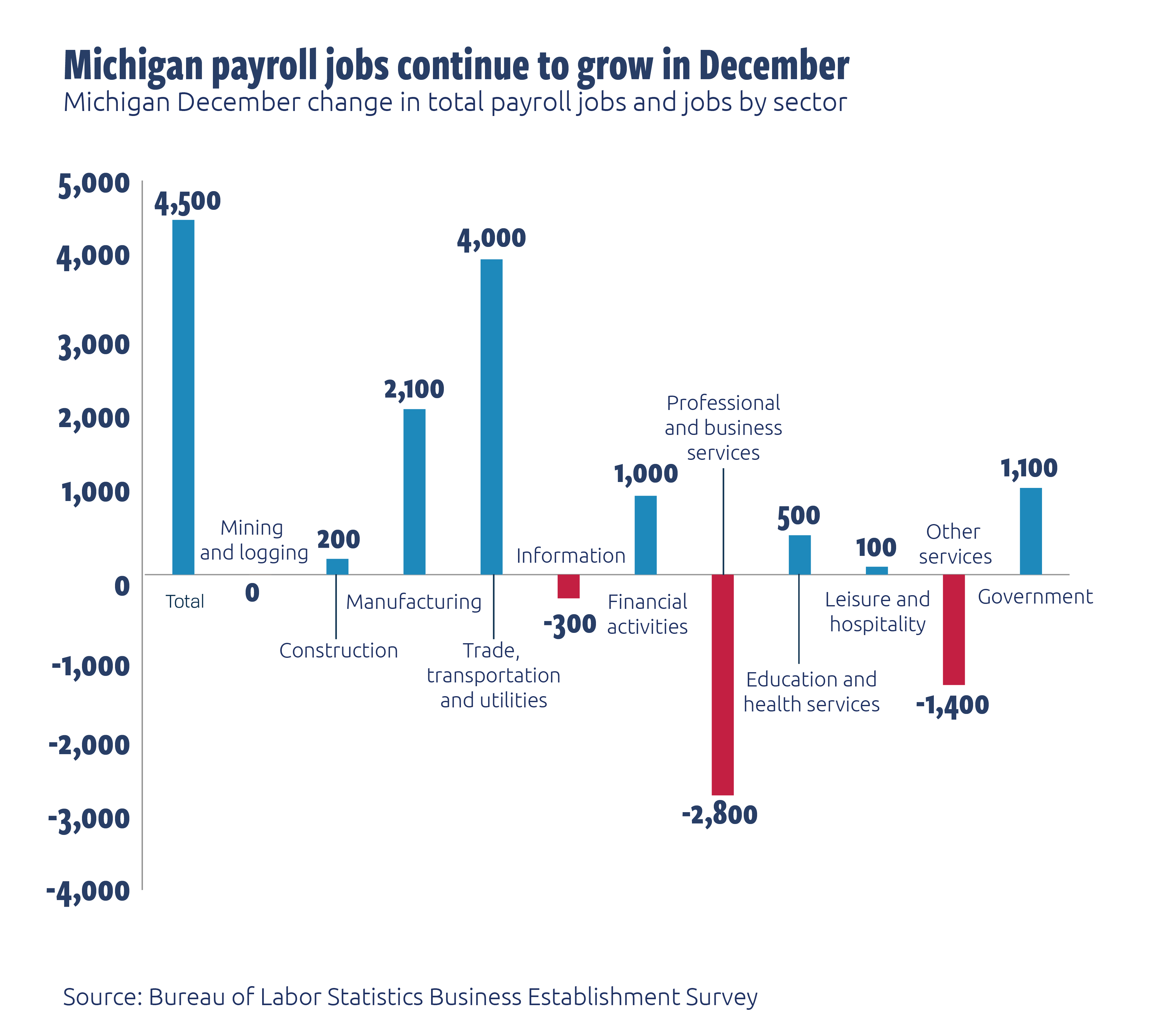
These gains put Michigan up a total of 19,500 jobs for the year, which represents continued jobs growth, but not strong growth compared to other years. Manufacturing is the largest sector of Michigan’s economy by GDP, and it lost 5,300 jobs in 2019. A slowdown in manufacturing coupled with the production stoppage from the auto strike hurt not only the manufacturing sector, but also sectors dependent on the auto sector’s strength.
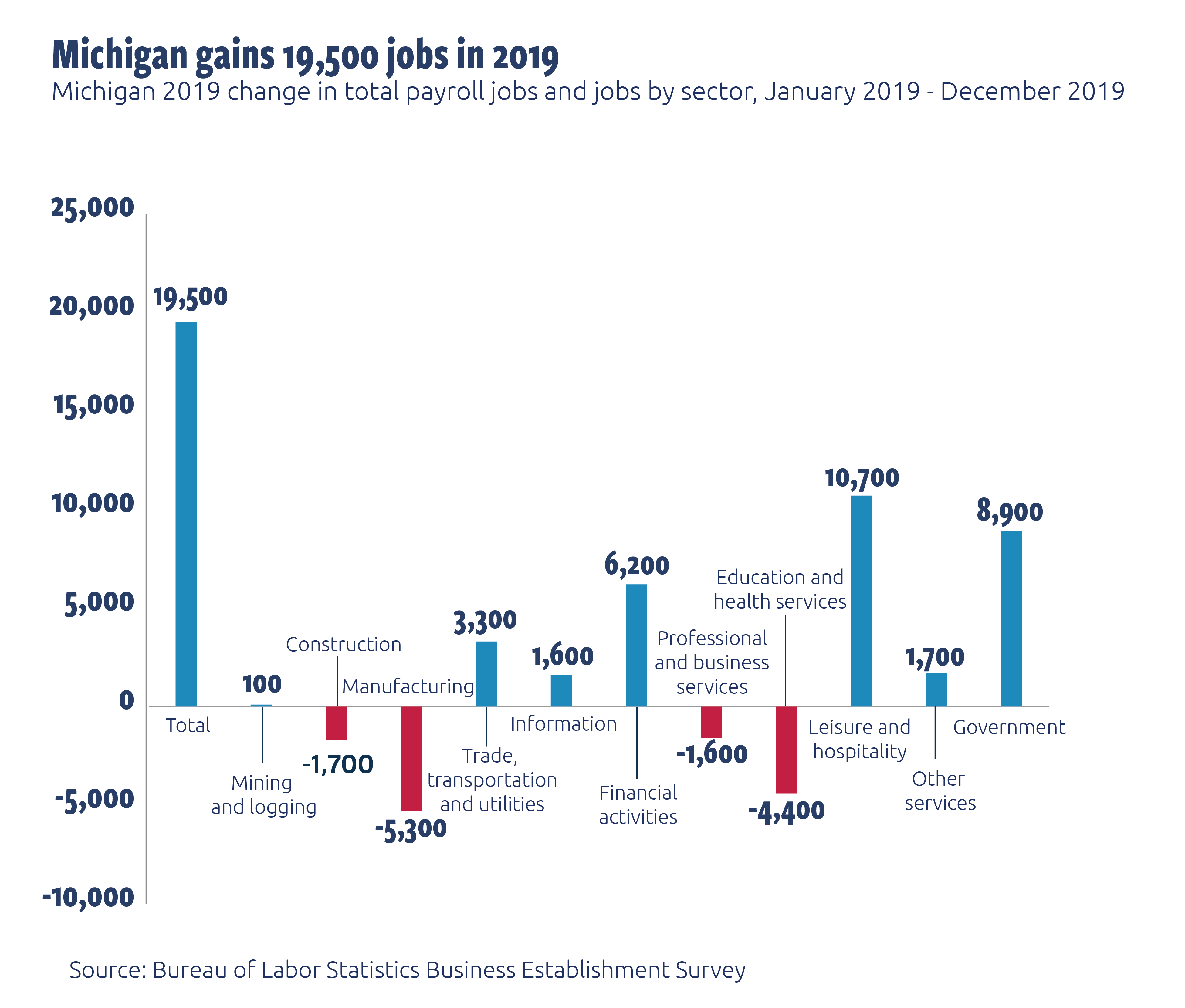
Household employment survey
Michigan’s unemployment rate dropped once again from 4% to 3.9% in December, according to the Bureau of Labor Statistics Household Survey. The number of unemployed Michiganders fell by 5,497 on the month and the number employed grew by 6,337, which was a net gain of 840 in Michigan’s labor force. The decline in the number of people actively seeking work is the reason for the state’s falling rate of those without a job – both voluntarily and involuntarily. It’s a positive sign for Michigan that the decline in unemployment continues to be associated with a gain in employment rather than on people giving up job searches and dropping out of the workforce, as is the case in states such as Illinois.
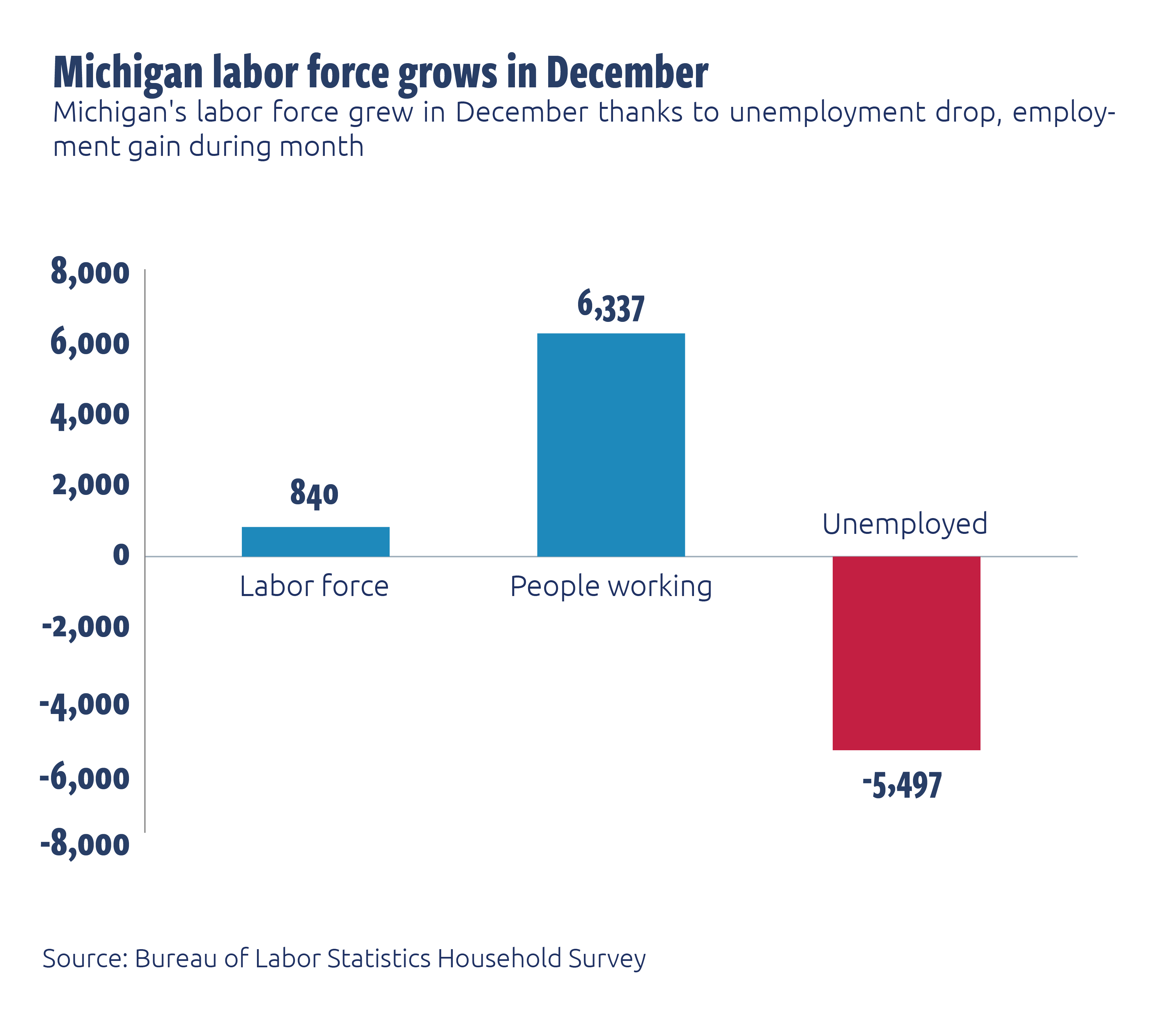
Michigan trends
The total decline of 5,300 manufacturing jobs is not a huge loss, but the preliminary data reflects Michigan’s first annual loss of manufacturing jobs in the past decade, and manufacturing processes are constantly being improved in ways that require less labor. The graphic below shows Michigan’s manufacturing jobs change by month, with the most notable changes in October and November associated with the beginning and end of the United Auto Workers’ strike.
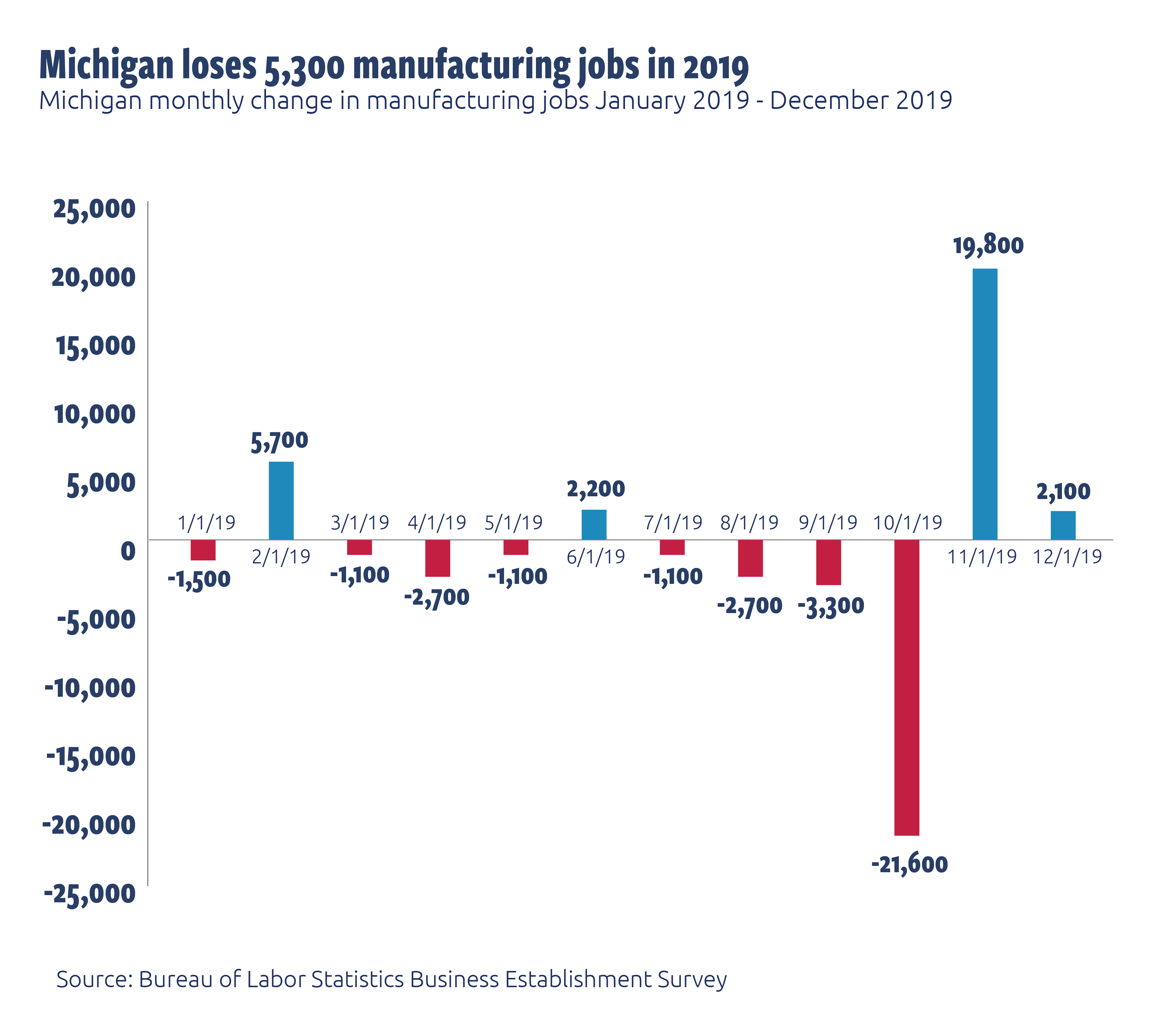
When state GDP reports come out later this year, the full picture will emerge of the growth in Michigan’s manufacturing sector in 2019. However, Michigan should continue to pursue policies that boost manufacturing production and employment, as it has done with pro-growth tax changes, the state’s right-to-work law and other regulatory reforms.
According to the preliminary data, total household employment grew by more than 58,000 in 2019. Total household employment is the number of Michiganders who said they were working, as opposed to payroll count – which is an estimate of business payroll. This number completes a very strong decade of household employment growth as Michigan bounced back from a nasty and prolonged recession. During the past 10 years, more than 580,000 Michiganders have found some form of employment.
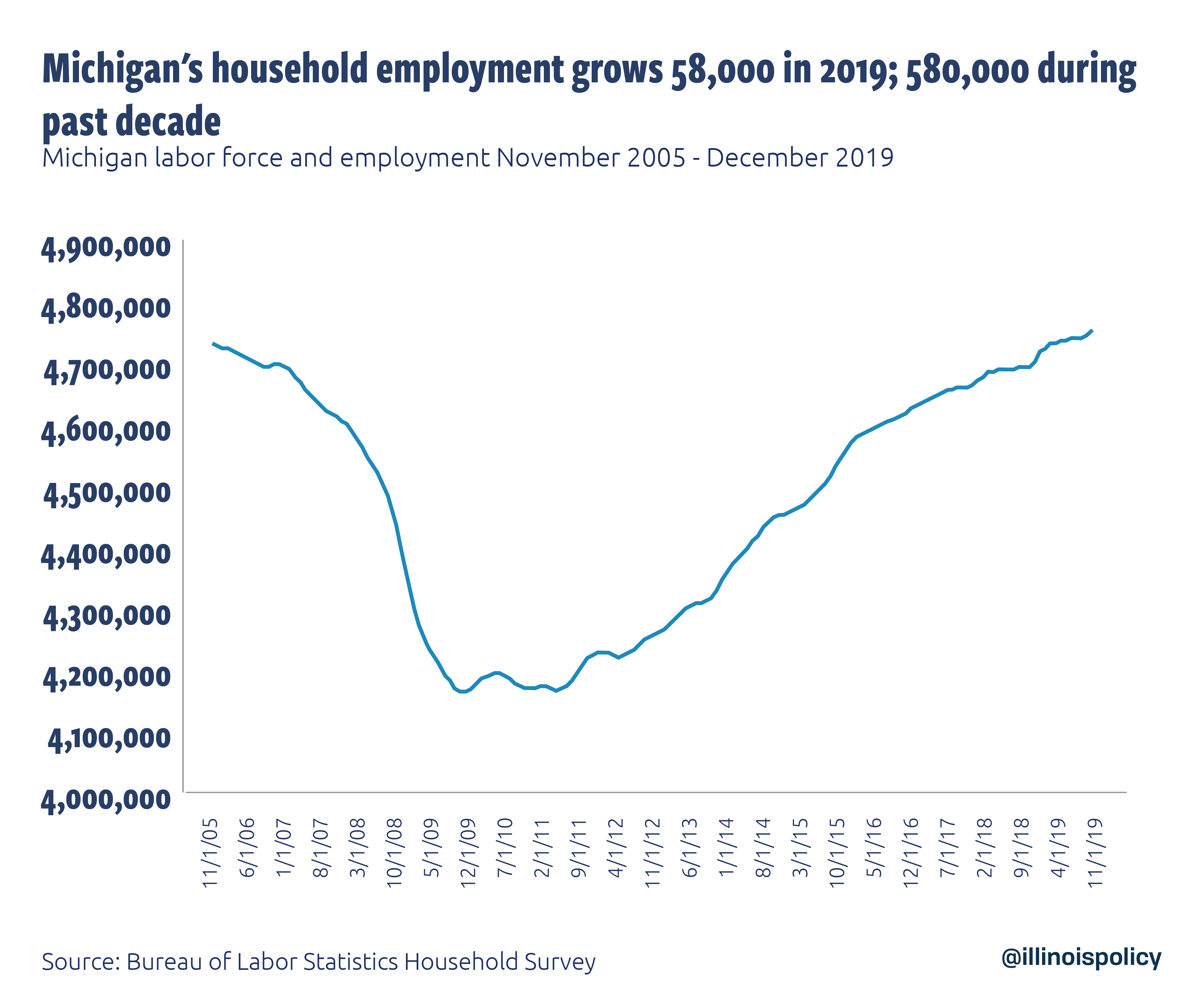
Michigan’s strong recession recovery was not a foregone conclusion: it was made possible by a series of smart policy changes to reform the pain points of Michigan’s economy. These included tax reform, a statewide right-to-work law, an effective bankruptcy process for Detroit and, more recently, the repeal of Michigan’s prevailing wage law. All of these changes helped to enhance Michigan’s competitiveness so that when the auto sector surged back, Michigan caught the benefits in growth and employment.
Michigan’s economy has demonstrated stronger growth than every other Midwestern state for the past decade, so it is no time to undo the victories that enabled this strength. A progressive income tax would significantly dampen the attractiveness of Michigan’s tax landscape, and cost the state investment dollars and further growth. Michigan’s current competitive income tax and right-to-work law show it to be a state that has learned from past mistakes, made positive policy changes and is geared for future growth. That’s the way it should remain.